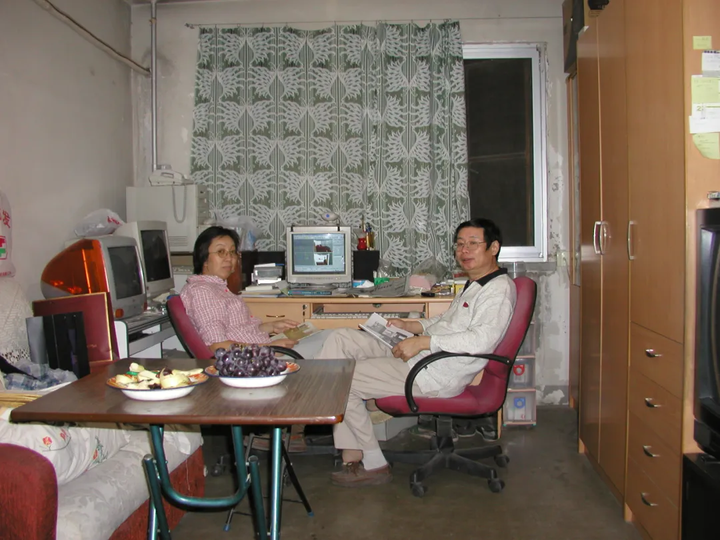A Fight for Survival: Chinese Man Saves His Kidney in China After Failed Treatment in New Zealand

Staff Writer: Yiyi Xie
Image Source: Supplied
Last year, Steven, a Chinese living in New Zealand, was diagnosed with a benign tumor on his kidney. Weighing his options, he opted to undergo surgery in New Zealand. However, what was supposed to be a straightforward, minimally invasive procedure quickly spiraled into a near full kidney removal.
A Simple Procedure Turns Complex
In early 2023, Steven’s doctors in New Zealand’s public hospital recommended an open surgery to remove part of his kidney. When he inquired about the possibility of a minimally invasive option, his doctors told him none were available—either in New Zealand or China.

Seeking further advice from a private hospital, Steven received the same answer: no minimally invasive option was available for this surgery, and robotic surgery would only be an option for a full kidney removal. Reassured by the consistent opinions, and with his wife in the final stages of pregnancy, Steven decided to proceed with the surgery in New Zealand instead of returning to China for treatment.

On December 15th, Steven underwent open surgery to remove part of his kidney.

However, two weeks later, complications arose. He experienced internal bleeding and fluid buildup, which led to multiple emergency hospital visits. To address the issues, doctors inserted a double-J stent to relieve pressure on his kidney, but despite these efforts, Steven’s recovery was slow and riddled with setbacks.
Kidney Failure and a Shocking Recommendation
By March, things had taken a grim turn. After a follow-up CT scan, Steven received devastating news: part of his kidney had died due to complications from the surgery, and his doctors advised removing the entire kidney. The suggestion hit Steven hard. After enduring months of pain, the prospect of losing his kidney entirely due to medical complications felt impossible to accept.
Worse yet, he learned that even if he agreed to the kidney removal, he would still face a wait of at least three months for the procedure. To add salt to the wound, Steven discovered that in China, his initial tumor could have been treated with a minimally invasive procedure, potentially avoiding the need for any kidney removal at all. Realizing the situation, Steven made the difficult decision to return to China for treatment, despite the risks associated with traveling in his fragile state.

Defying the Odds: A Race Back to China
Steven knew flying with drainage tubes would be complicated, and when he asked his New Zealand doctors for a travel clearance, they handed him a document declaring him unfit for long-haul flights. But Steven couldn’t wait any longer. If he stayed, he feared he’d be stuck waiting months for surgery while his condition worsened.

On March 27th, after a long journey with a layover in Shanghai, Steven arrived in Wenzhou, China. He was immediately admitted to a local hospital, where the pace of his treatment left him astonished. Within just a few days, he completed all the necessary tests and was given a detailed treatment plan. Steven couldn’t help but compare this speed to the much slower pace he’d grown used to in New Zealand.

Chinese doctors discovered no significant fluid buildup and, after replacing his infected stent, stabilized his condition. Just two weeks later, the stent was removed, and Steven’s kidney was saved.
A Growing Trend: Chinese Expats Returning Home for Treatment
Steven’s story struck a chord with many in the Chinese community, both in New Zealand and abroad. His experience shed light on the struggles that many immigrants face when navigating healthcare systems in Western countries. Despite New Zealand’s free healthcare, the system is often criticized for long wait times and lower standards of care. As many people say, “minor issues become major ones, and major issues leave you hanging by a thread.”

By the time Steven had returned to China, undergone treatment, and begun his recovery, he received notice that his complaint against the New Zealand hospital had been acknowledged. It would take another 6-8 weeks just to begin processing.
Steven’s experience isn’t unique. Many Chinese expats have shared their own stories of returning home for critical treatment. One person mentioned having to fly back to China to reattach a severed finger, as they would have waited at least a month for surgery in New Zealand. Another shared that they had to wait five months just for an MRI appointment.
No Perfect Healthcare System, Only What’s Right for You
Reflecting on his ordeal, Steven came to an important realization: no healthcare system is perfect—it’s about finding what’s right for your specific situation. He noted that New Zealand’s healthcare system is better suited for managing long-term, chronic conditions, offering a strong focus on patient care at a lower cost. However, China excels in efficiency and surgical expertise, making it ideal for acute issues and non-life-threatening but painful conditions.

Steven’s advice is clear: never take one doctor’s opinion at face value, especially abroad. Always seek a second opinion from doctors in your home country, particularly when it comes to serious medical issues. In Steven’s case, had he consulted with Chinese doctors earlier, his kidney would have been spared the first time around.
While Steven’s experience was painful, it taught him the importance of questioning the advice he was given and looking beyond borders for the best medical care. His story serves as a reminder that sometimes, the best option is simply the one that works for you.



